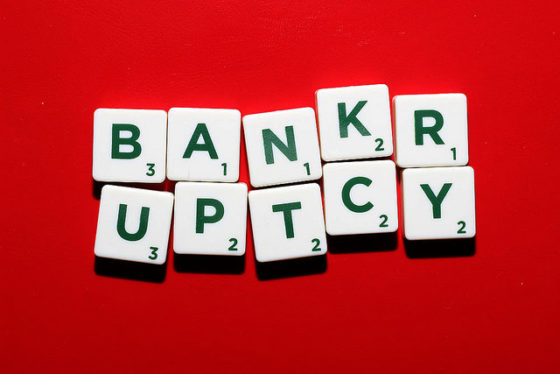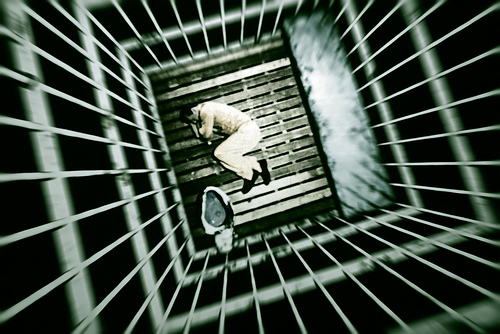
In some cases, you can boost your income and help reduce your debt by getting a second job. This is a good option for those who simply need to catch up on bills or payments that were late due to unexpected circumstances. But if you are in severe debt, a second job may not be the ultimate answer for you.
Find out below if a second job is right for you, or if you might have better luck filing for bankruptcy and wiping away your debt.
Millions of Americans Have Multiple Jobs
Millions of Americans are already working two or more jobs, according to a report by Bloomberg News. The number of workers who work multiple part-time jobs to make a full-time one — 2 million — has increased by 11% since 2007. It’s a section of the population that’s also growing faster than people who hold down a full-time job in addition to a part-time job.
During tough economical times, people are resourceful. They often must moonlight to make ends meet. In some cases, people reported having three jobs. The number of people working multiple jobs is not expected to change significantly in the foreseeable future.
If your financial situation is considered temporary, or you are starting to make a dent in your debt, taking another job may be a viable solution. However, it is important to note that in many cases, people are unable to continue working multiple jobs for a long period of time. For some, the option of a second job is used only as a temporary solution to get you through an immediate financial problem. Some people are not able to take on another job because of other commitments such as caring for their children.
Getting a Second Job in Dayton
According to the United States Department of Labor Bureau of Labor Statistics, unemployment for Dayton, Ohio, is at about 4.4% as of the end of 2016. The majority of local jobs last year were in education and health services; trade, transportation, and utilities; government; and professional and business services, respectively.
There are a number of different options for those who want to get a second job, including temporary or short-term employment opportunities. Similar to other employment opportunities, you will be better suited to some kinds of jobs than others.
Determine what type of job will best suit your needs. Many people find success with jobs that allow you to make your own hours or work a flexible schedule. This is particularly important if you’re trying to work around your regular schedule.
Check with temp agencies that are able to match you with local companies that need your services. Seasonal employment is available at retail stores during back-to-school and holiday periods. These jobs offer flexible hours and schedules, while other choices include restaurants and fast-food establishments.
It’s also possible to start your own small business that you can work during your available hours. Some of these possibilities include:
- Driver for ride-share service
- Pet sitter/walker
- Cosmetics sales
- Fitness instructor
- Daycare provider
- Substitute teacher
- School bus driver
- Delivery person
When you consider a second job, think about doing something that you like or enjoy, such as something related to a hobby. Think of something that you can do in your spare time, so you can fit it around your other job’s hours.
Should I File for Bankruptcy?
Just because you are behind in your bills doesn’t mean that you need to file bankruptcy. However, in many cases, bankruptcy can be a very good solution to help those who have a serious debt problem. This can occur when you have been out of work for some time, or are facing unanticipated expenses such as those that occur with an accident or serious illness.
When you are consistently unable to make payments on your debts, you become increasingly insolvent. It becomes increasingly difficult to dig yourself out of the financial debt hole that you are in.
There are two main types of bankruptcy that may apply to individuals. Chapter 7 is the simplest type of bankruptcy. Those who file Chapter 7 will be required to liquidate their assets in order to repay as much of their debt as possible. Chapter 13 bankruptcy allows the reorganization of debts into a repayment plan. Once you file bankruptcy, your situation is secured and creditors are no longer allowed to contact you for payments. Instead, you will work within the court system to resolve your debt situation. In many instances, you will be able to keep many of your possessions.
After filing bankruptcy, your credit score will be impacted. However, many people already are facing very low credit scores, which will only continue to decline if the debts remain unpaid. As a person’s ability to repay their debts continues, they will be increasingly unable to get loans, mortgages, or bank notes.
See also: Ohio is One of the Top 10 States for Bankruptcy Filings, How Many People Filed for Bankruptcy in Dayton in 2016?, Where are the Dayton Bankruptcy Courts?
Hiring an Experienced Bankruptcy Attorney
Each debt situation is different, and requires a unique solution. There are many factors to think about when considering whether to file bankruptcy. Some of these include the amount of debt you have, the value of your possessions, how far in debt you are, whether you are employed, and whether you have other ways of resolving your debt problem.
A qualified bankruptcy attorney with Cope Law Offices will evaluate your case to help you learn both the pros and cons of filing for bankruptcy. Contact us today for a free consultation.





 Losing your job. Opening the day’s mail and seeing a big, unexpected medical bill you can’t pay for. Never feeling like those credit cards will ever get under control.
Losing your job. Opening the day’s mail and seeing a big, unexpected medical bill you can’t pay for. Never feeling like those credit cards will ever get under control. Unfortunately, owning a business doesn’t mean you can’t run into personal financial trouble. If you have too much debt to handle, a bankruptcy can help you wipe the slate clean and start over. But will a personal bankruptcy affect your business?
Unfortunately, owning a business doesn’t mean you can’t run into personal financial trouble. If you have too much debt to handle, a bankruptcy can help you wipe the slate clean and start over. But will a personal bankruptcy affect your business? Last updated March 30, 2017.
Last updated March 30, 2017.